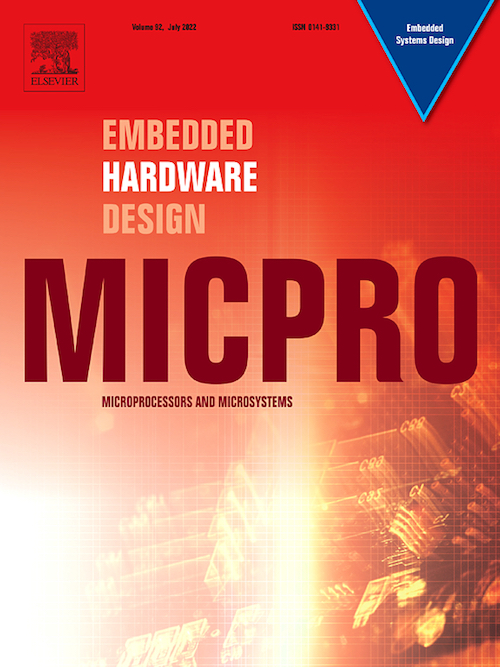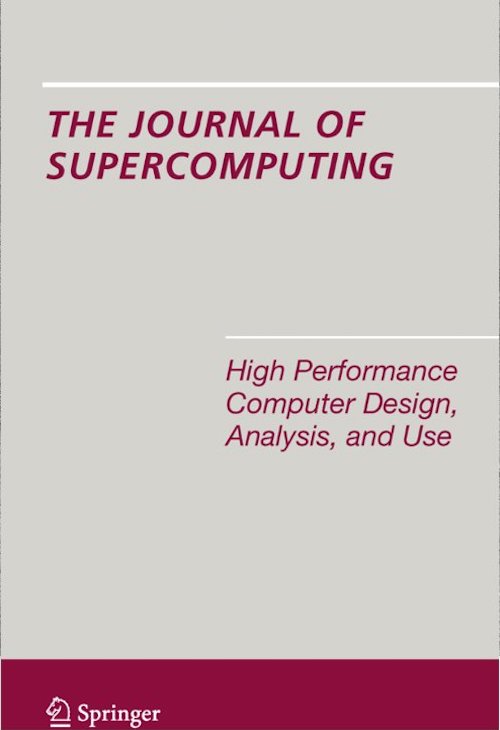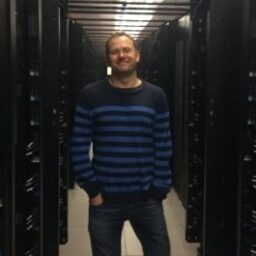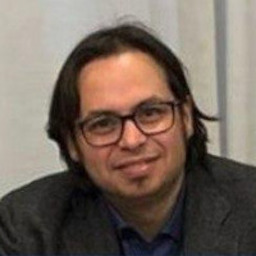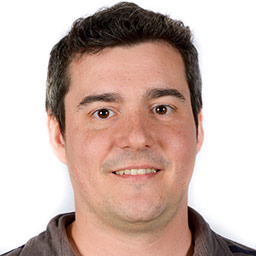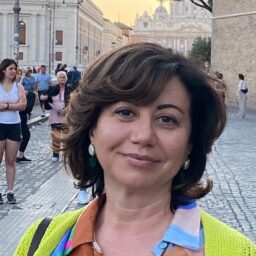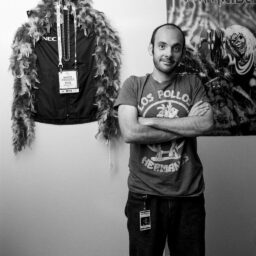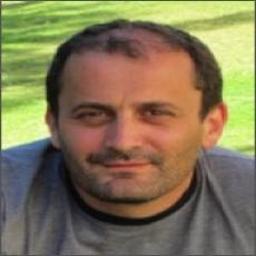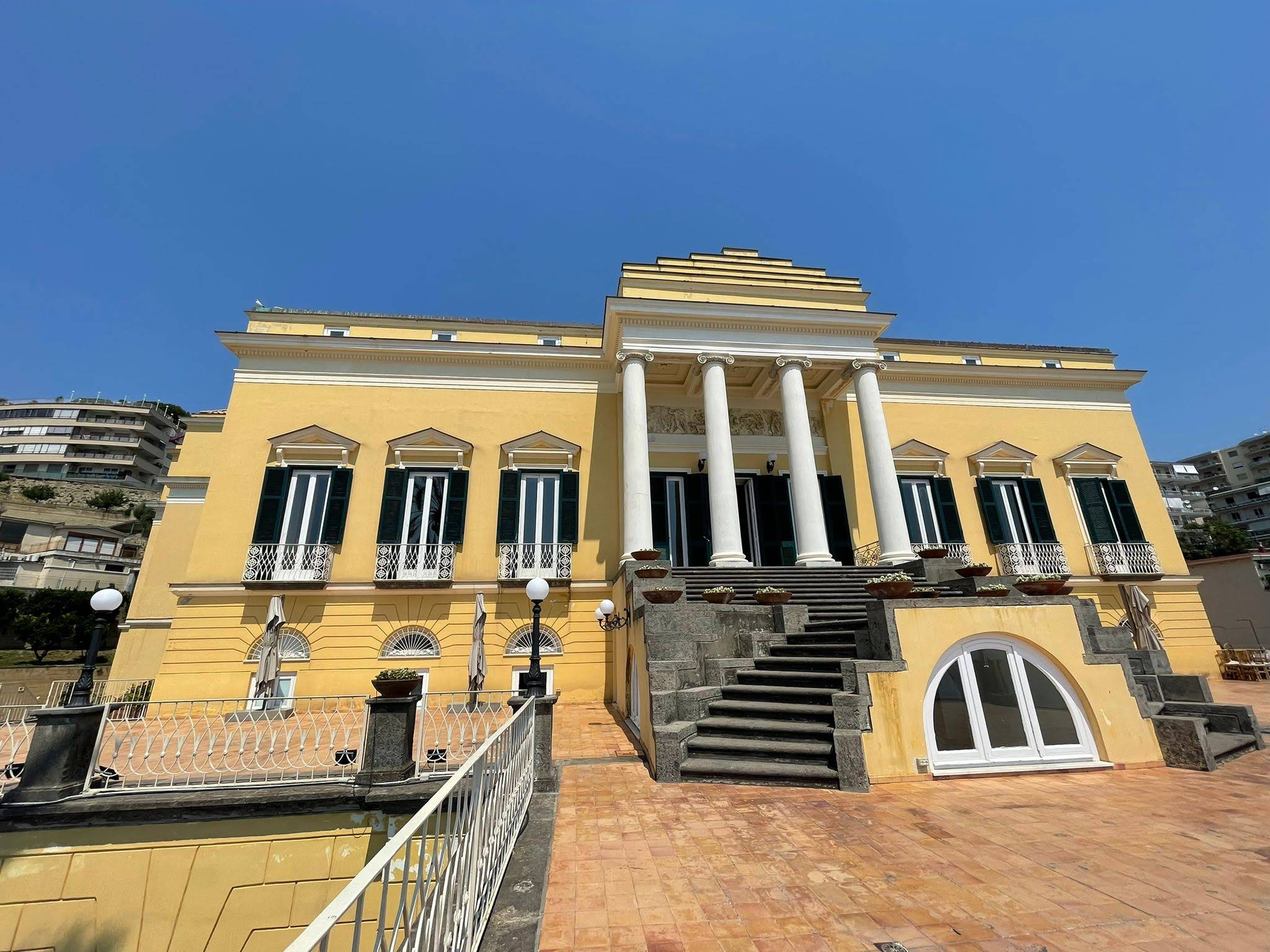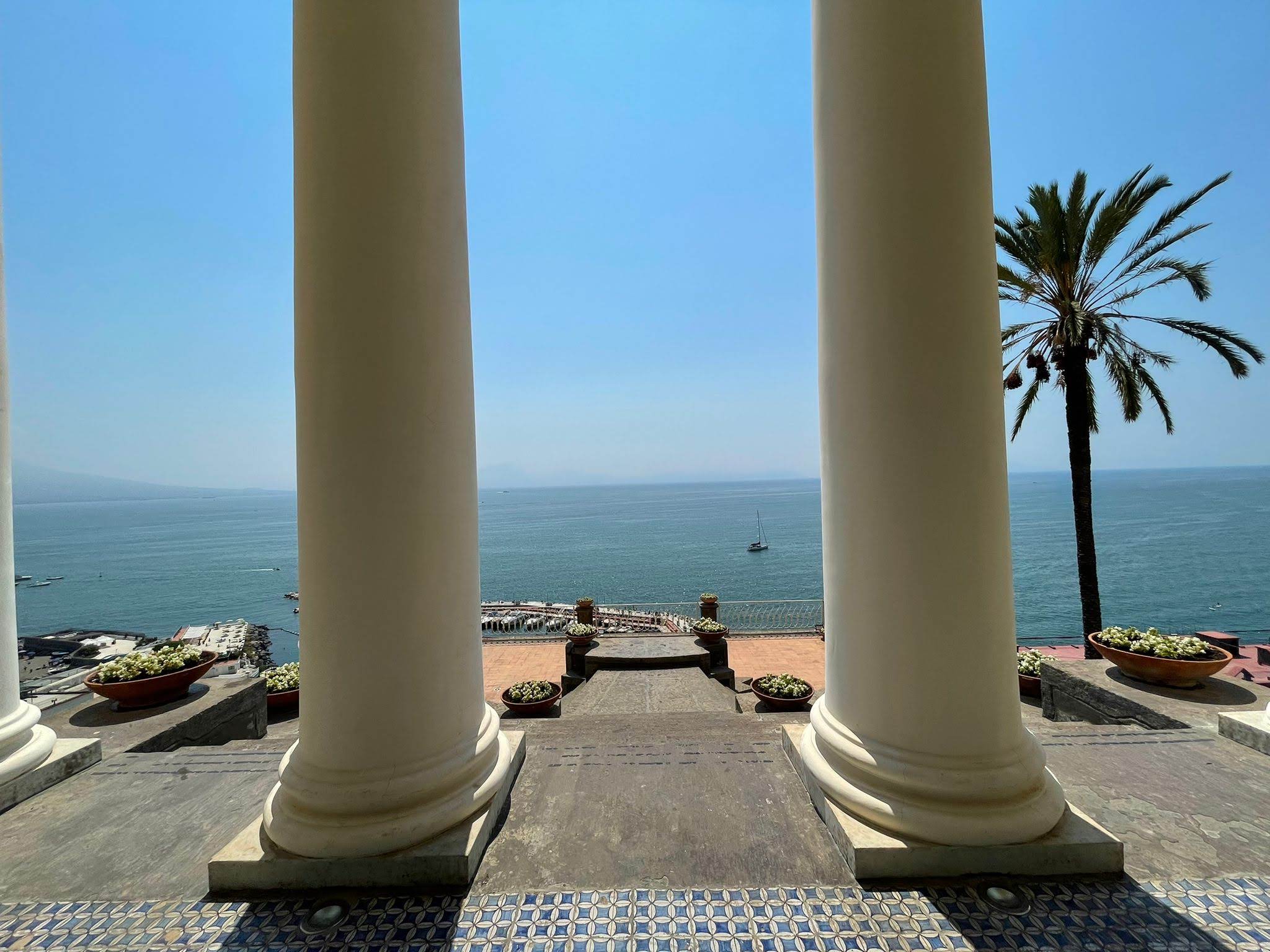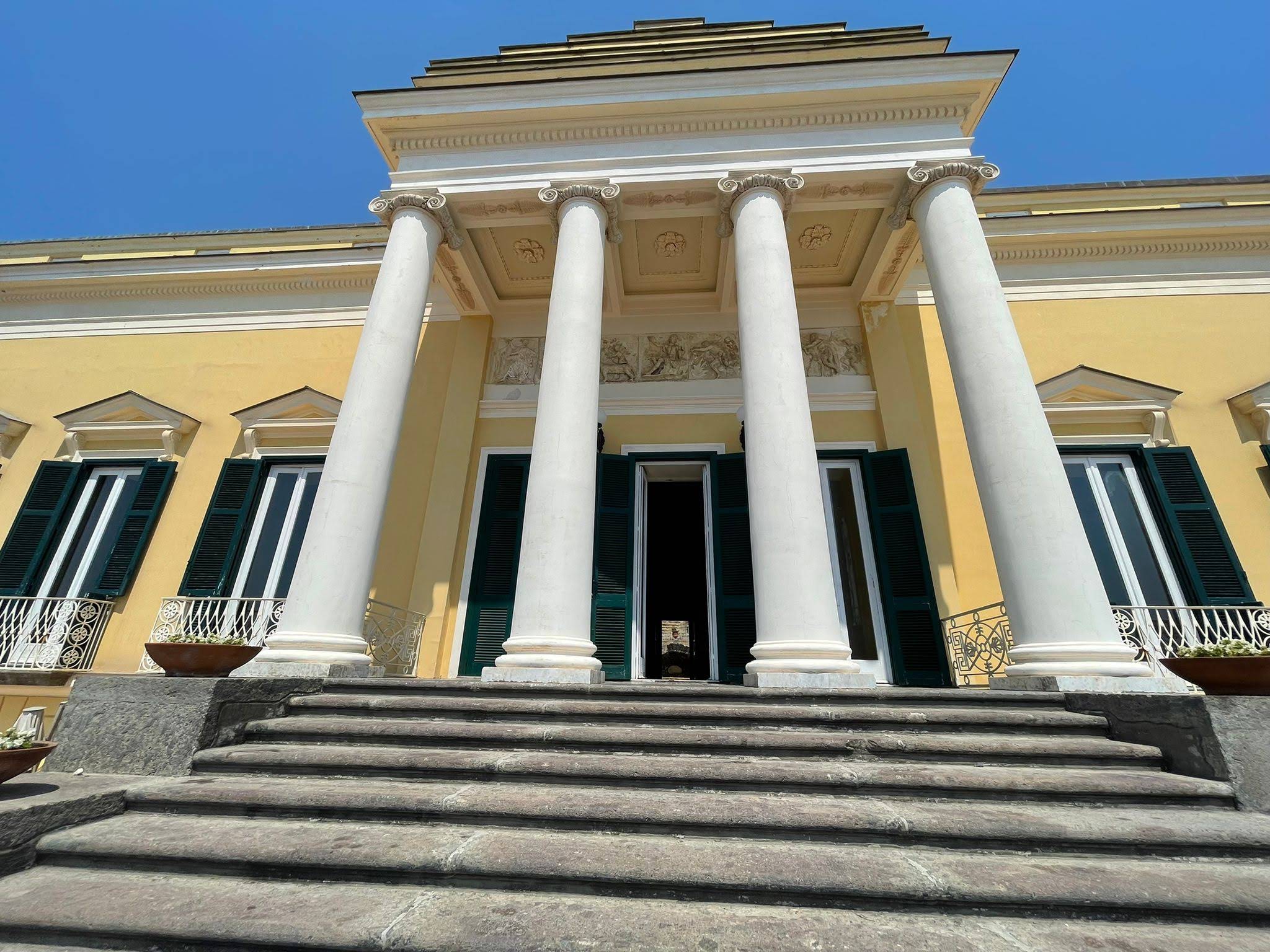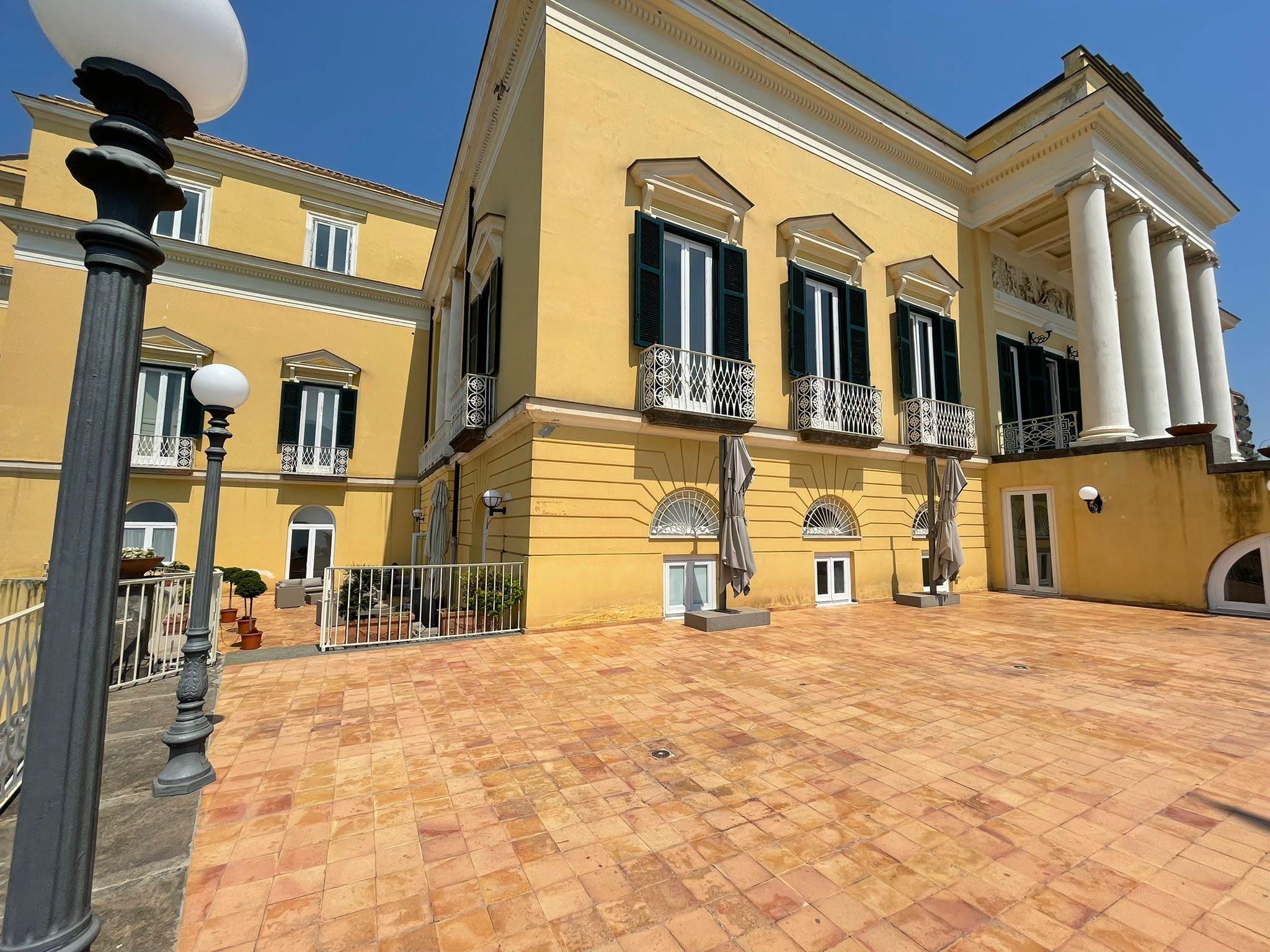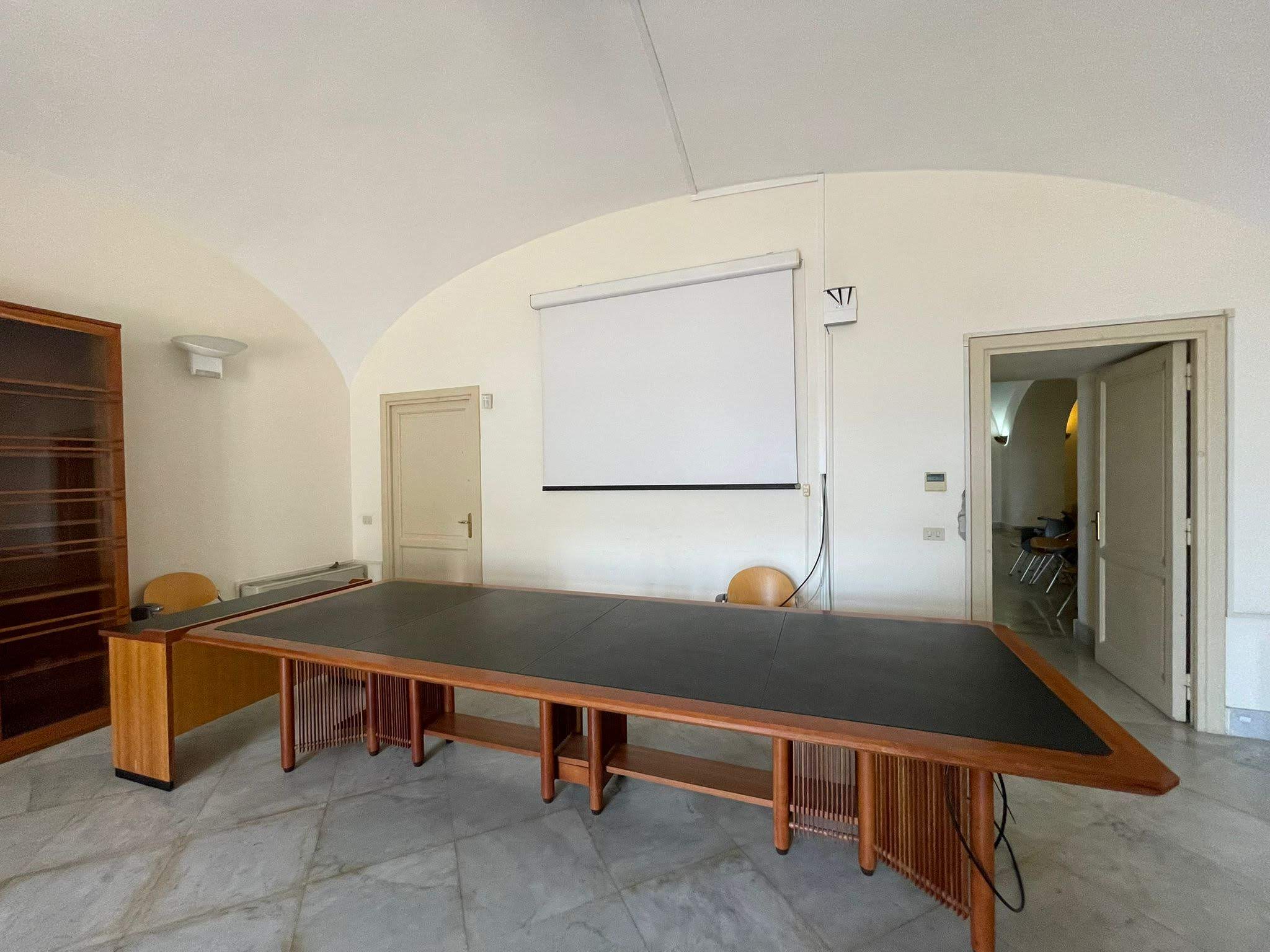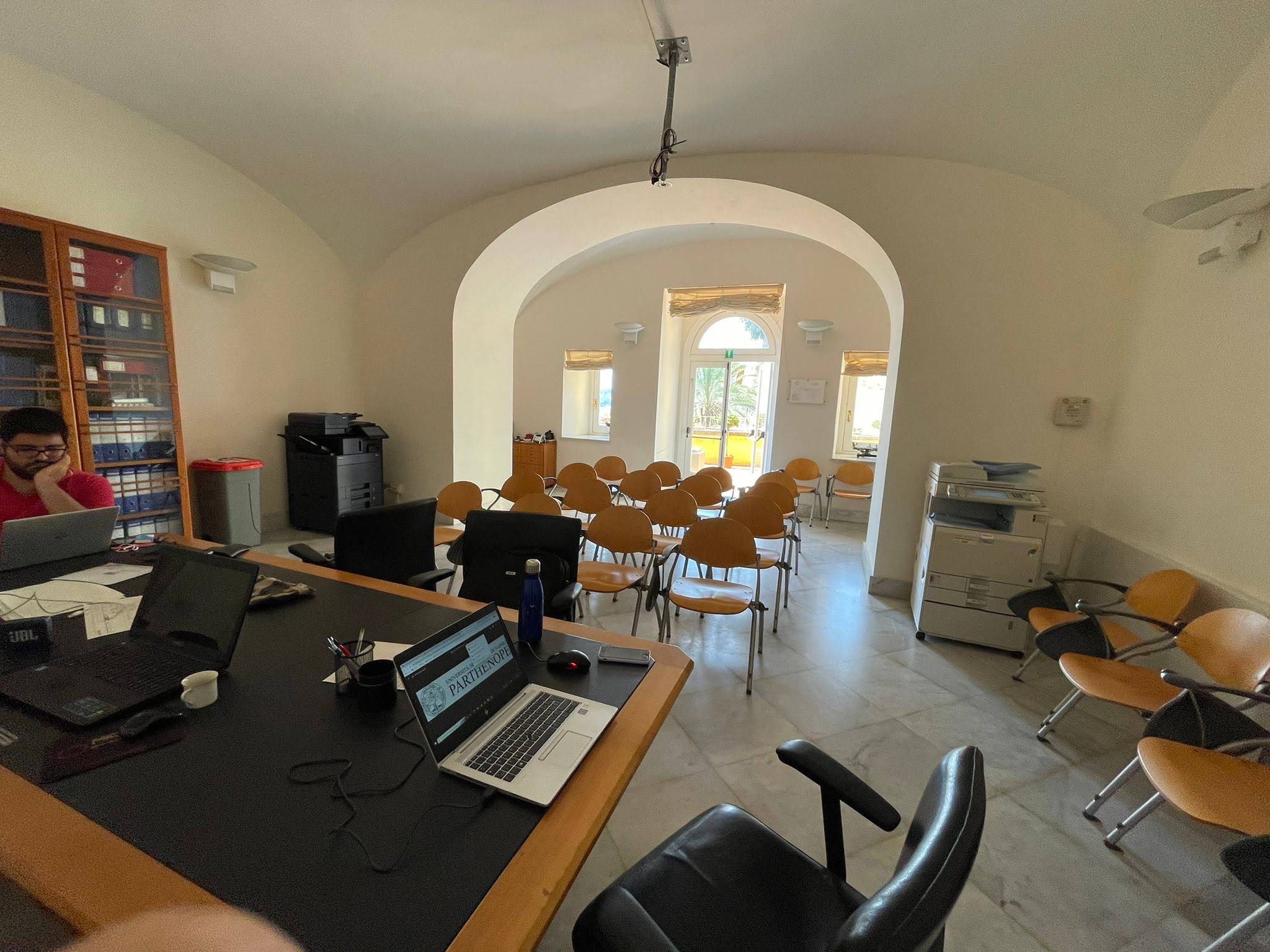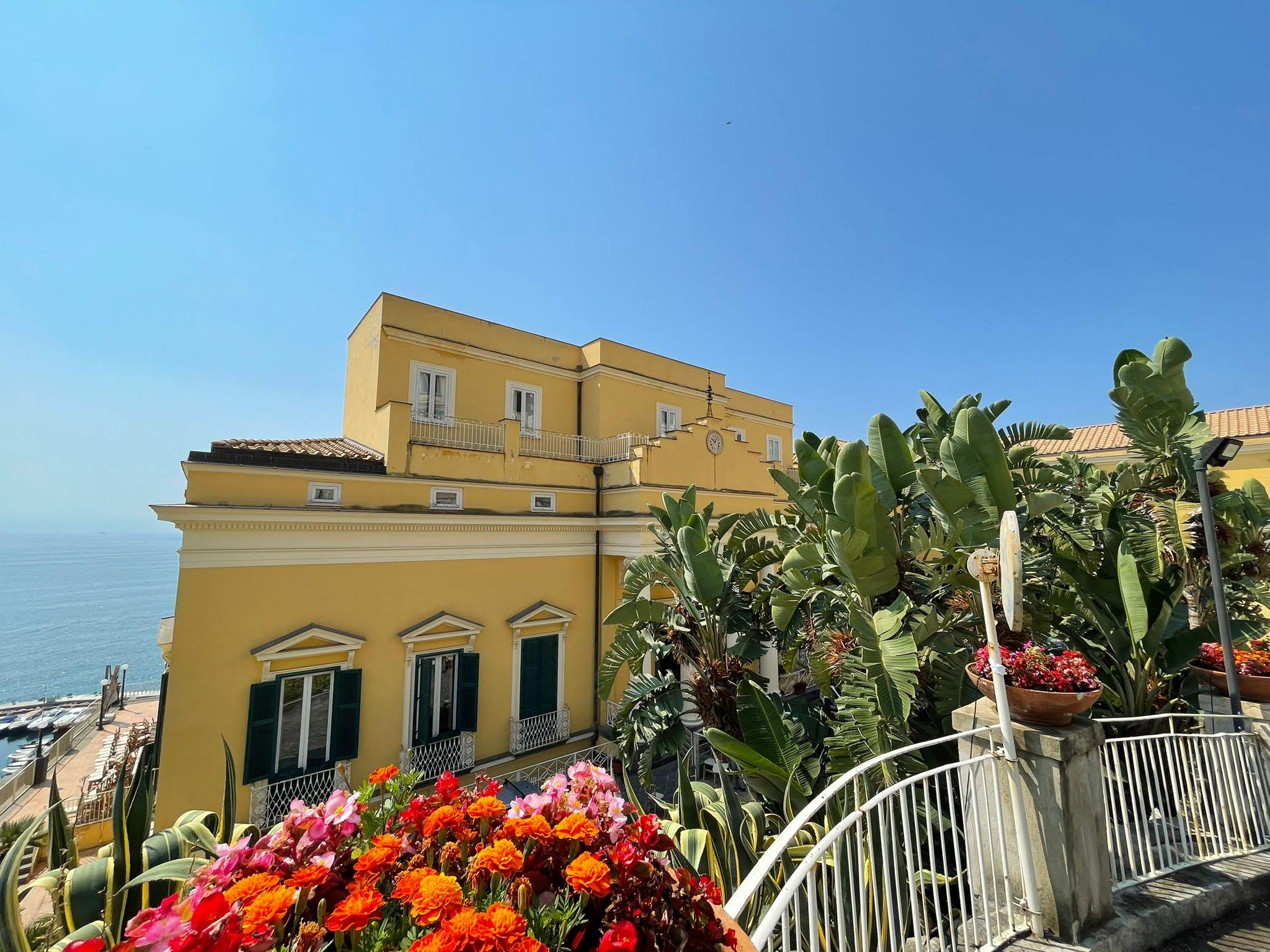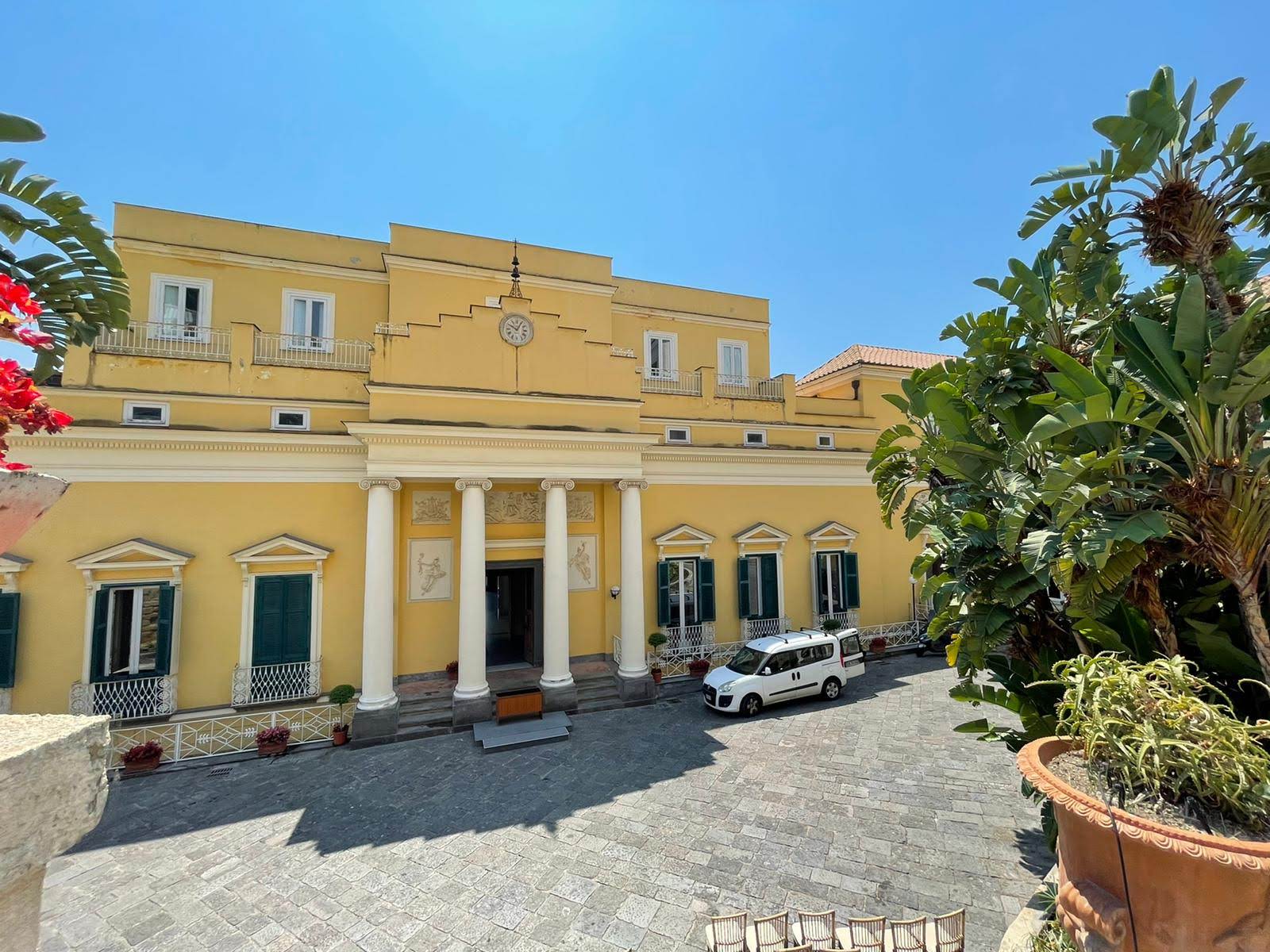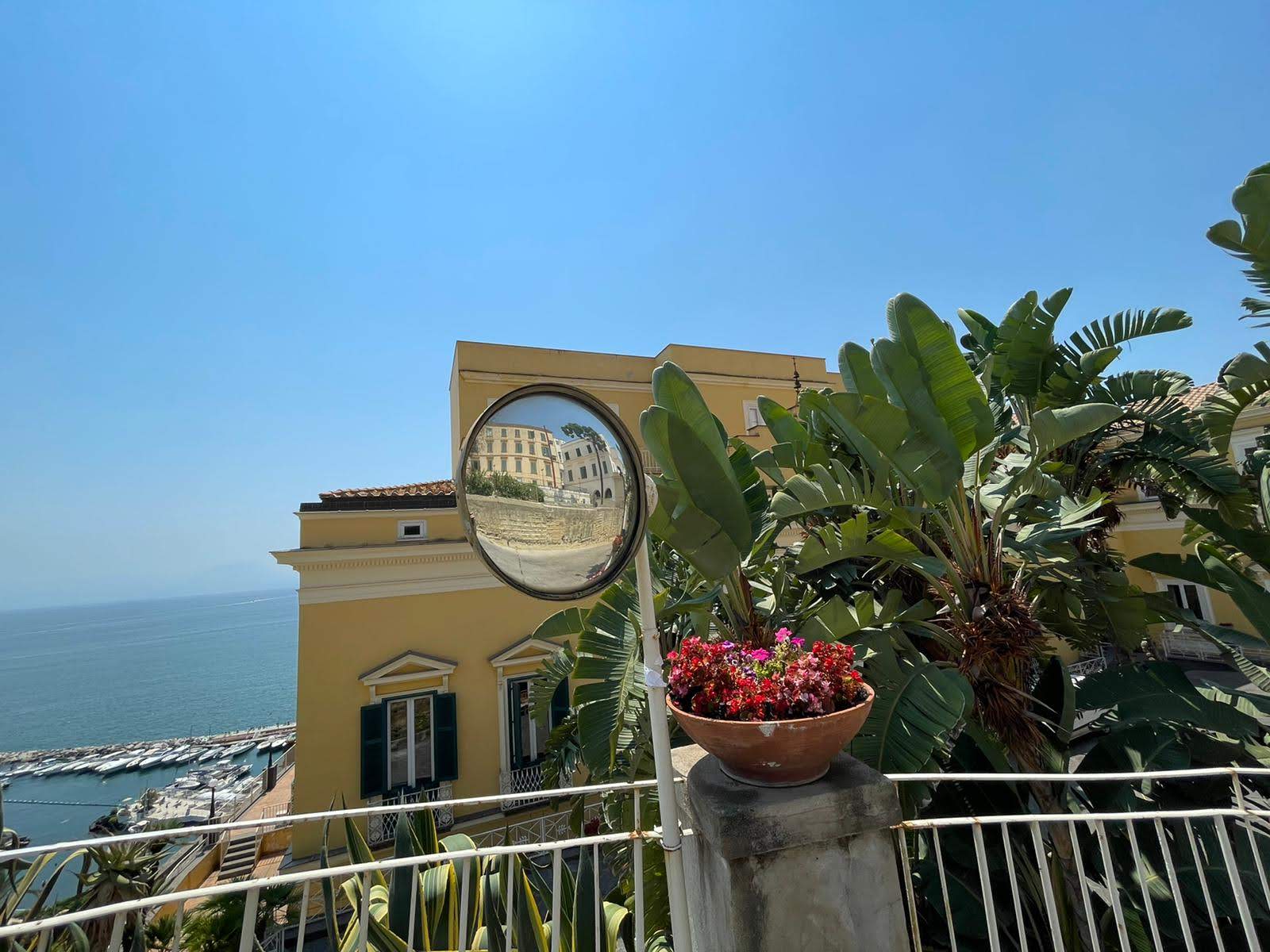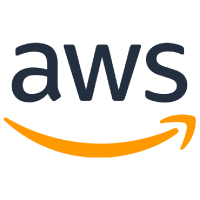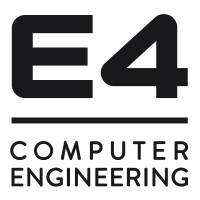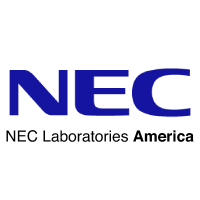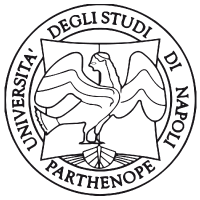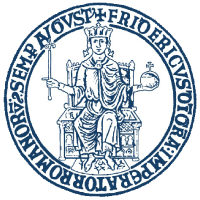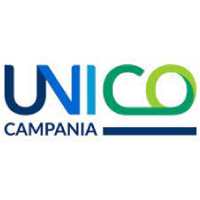March 1-3, Naples, Italy
PDP 2023
31st Euromicro International Conference on Parallel, Distributed, and Network-Based Processing
Parallel, Distributed, and Network-Based Processing
Parallel, Distributed, and Network-Based Processing has undergone impressive change over recent years. New architectures and applications have rapidly become the central focus of the discipline. These changes are often a result of the cross-fertilization of parallel and distributed technologies with other rapidly evolving technologies. Therefore, reviewing and assessing these new developments is paramount compared with recent research achievements in the well-established areas of parallel and distributed computing from industry and the scientific community. PDP 2023 will provide a forum for presenting these and other issues through original research presentations and facilitate the exchange of knowledge and new ideas at the highest technical level. This year's edition is part of the dissemination activities of the ADMIRE project, wich will also be an exhibitor at the conference Demo Area together with E4 Computer Engineering.
Conference Starts in:
Registration is now open! Take advantage of our Early Registration fees until February 17th.
About Euromicro
Euromicro is an international scientific organization advancing sciences and applications of Information Technology and Microelectronics. A significant focus is organizing conferences and workshops in Computer Science and Computer Engineering. Euromicro is a non-profit association founded in 1974, and annual meetings have taken place in more than 20 countries all over Europe. Find out moreAbout ADMIRE
The ADMIRE project aims to avoid congestion and balance computational with storage performance when processing extremely large data sets. The main objective of the ADMIRE project is to establish this control by creating an active I/O stack that dynamically adjusts computation and storage requirements through intelligent global coordination, the malleability of computation and I/O, and the scheduling of storage resources along all levels of the storage hierarchy. Find out more
Please, register for the conference social events before February 17th.
Call for Papers
Submit your papers to EasyChair.
Parallel Computing: massively parallel machines; embedded parallel and distributed systems; multi- and many-core systems; GPU and FPGA-based parallel systems; parallel I/O; memory organization.
Distributed and Network-based Computing: Cluster, Grid, Web, and Cloud computing; mobile computing; interconnection networks.
Big Data: large-scale data processing; distributed databases and archives; large-scale data management; metadata; data-intensive applications.
Programming models and Tools: programming languages and environments; runtime support systems; performance prediction and analysis; simulation of parallel and distributed systems.
Systems and Architectures: novel system architectures; high data throughput architectures; service-oriented architectures; heterogeneous systems; shared-memory and message-passing systems; middleware and distributed operating systems; dependability and survivability; resource management.
Advanced Algorithms and Applications: distributed algorithms; multi-disciplinary applications; computations over irregular domains; numerical applications with multi-level parallelism; real-time distributed applications.
The Call for Papers is available here.
Important dates
- Deadline for paper submission:
November 30December 11December 18 (firm), 2022 - Acceptance notification: January 22, 2022
- Camera-ready paper due: February 3, 2023
- Registration open: January 25, 2023
- Authors’ registration until: February 15, 2023
- Early registration until: February 17, 2023
- Conference: March 1 – 3, 2023
Submission of Papers
Prospective authors should submit a full paper not exceeding 8 pages in the IEEE Conference proceedings format (IEEEtran, double-column, 10pt) to the conference main track or the Special Sessions through the EasyChair submission system (see link below) indicating the Main Track or the chosen Special Session. The submission period will open on July 31st. https://easychair.org/conferences/?conf=pdp2023- Double-blind review: the paper should not contain authors’ names and affiliations; in the reference list, references to the authors’ work entries should be substituted with the string “omitted for blind review”.
- Publication: all accepted papers will be included in the same proceedings volume published by Conference Publishing Services (CPS). The Final Paper Preparation and Submission Instructions will be announced after the notification of acceptance. Authors of accepted papers are expected to register and present their papers at the Conference. Conference proceedings will be submitted for indexing, among others, to DBLP, Scopus ScienceDirect, and ISI Web of Knowledge.
Journal Special Issue
Selected papers will be invited to submit an extended version to a special issue in the selected JCR-indexed journals Microprocessors and Microsystems (Elsevier) and The Journal of Supercomputing (Springer).Special issue on Parallel, Distributed, and Network-Based Systems
This special issue of the Microprocessors and Microsystems (MICPRO) journal is devoted to selected high-quality papers from the 31st Euromicro International Conference on Parallel, Distributed, and Network-Based Processing. Submission deadline is 30 September 2023. Call for paperNew Trends in Parallel, Distributed, and Network-based Processing: Key Technologies, Tools, and Applications
This special issue of The Journal of Supercomputing (JSUPE) is devoted to selected high-quality papers from the PDP 2023, as well as to other high-quality papers that fit the Special Issue topics. Submission deadline is 30 September 2023. Call for paperInstructions for authors of accepted papers
IMPORTANT DATES: These are hard deadlines. Please let us know if you will have any problems meeting them:- Camera-ready: February 3rd
- IEEE Copyright transfer: February 17th
- Early registration until: February 17th
- Upload a camera-ready version complying with the final manuscript format requirements and the following page limits:
Full paper: Maximum of 8 pages; additional pages are charged with 60 Eur. per extra page (up to 2 additional pages)
Short paper: Maximum of 4 pages; an additional page can be included with a charge of 60 Eur.
- Full consideration of reviewers’ remarks and suggestions for the elaboration of the camera-ready version
- Provide the following required extra material: Fulfilled IEEE copyright transfer form; information about the presenter, including plain text with a short bio and a photograph.
- Full registration of at least one of the authors of each manuscript.
- Camera-ready: the final version of the paper should be uploaded to the EasyChair platform as a new version of the same submission.
- Copyright form: authors will timely receive instructions to fulfill the IEEE copyright transfer form.
Registration is available from €430. Join us in Naples on 1-3 March and be part of the change!
Registration Fees
The registration procedure is managed by the Euromicro web portal.
Conference Schedule
PDP 2023 full schedule of keynotes, sessions & workshops will be available soon
Registration and welcome espresso
Opening Ceremony
Keynote – Distributed computing disrupts. Discuss.
Coffee Break
Karl-Erwin Grosspietsch
Euromicro
Main Track
Jesus Carretero
University Carlos III of Madrid
BDCSA2023: Big Data Convergence: from Sensors to Applications
Salvatore Cuomo
University of Naples “Federico II”
SALTCSMLNHPC2023: Scalable Algorithms, Libraries and Tools for Computational Science and Machine Learning on New Heterogeneous HPC Systems
Lunch
Keynote – Soft Computing in data integration and decision-making
Coffee Break
Valeria Mele
University of Naples “Federico II”
Main Track
Katzalin Olcoz
Universidad Complutense de Madrid
BDCSA2023: Big Data Convergence: from Sensors to Applications
Francesco Piccialli
University of Naples “Federico II”
SALTCSMLNHPC2023: Scalable Algorithms, Libraries and Tools for Computational Science and Machine Learning on New Heterogeneous HPC Systems
Guided Tour (reservation needed)

Burbon Tunnel - Adventure Tour
Reception & Coffee
Keynote – Introducing the FaaS model in Complex HPC Workflows: The eFlows4HPC approach
Coffee Break
Antonella Galizia
IMATI-CNR
Main Track
William Spataro
University of Calabria
HPCMS2023: High Performance Computing in Modelling and Simulation
E4 & ADMIRE
TUTORIAL
Lunch
Keynote – Node-level efficiency and scalability issues in iterative sparse linear solvers at scale
Coffee Break
Giuliano Laccetti
University of Naples Federico II
Main Track
Giuseppe Trunfio
University of Sassari
HPCMS2023: High Performance Computing in Modelling and Simulation
E4 & ADMIRE
TUTORIAL
E4 Computer Engineering
Industrial Session
Aperitivo & Social Dinner (reservation needed)
Reception & Coffee
Keynote – A solution for real-time streaming applications
Coffee Break
Marco Lapegna
University of Naples “Federico II”
Main Track
Emanuel Di Nardo
University of Naples “Parthenope”
CCIaaSA2023: Cloud Computing on Infrastructure as a service and its Applications
Maria Fazio
University of Messina
CC2023: Compute Continuum
Lunch
Keynote – Frauds in the Cryptocurrency Ecosystem
Coffee Break
Javier Garcia Blas
Universidad Carlos III de Madrid
Main Track
Raffaele Montella
University of Naples “Parthenope”
Awards and conclusions
Keynote Speakers
Well known industry leaders and emerging talents
Special Sessions
The following Special Sessions will be part of PDP 2023
HPCMS intent is to offer an opportunity to express and confront views on trends, challenges, and state-of-the art in diverse application fields, such as engineering, physics, chemistry, biology, geology, medicine, ecology, sociology, traffic control, economy, etc.
Topics of interest include, but are not limited to:
- High-performance computing in computational science: intra-disciplinary and multi-disciplinary research applications;
- Complex systems modeling and simulation;
- Cellular Automata, Genetic Algorithms, Neural networks, Swarm Intelligence implementations;
- Integrated approach to optimization and simulation;
- MPI, OpenMP, GPGPU applications in Computational Science;
- Optimization algorithms, modelling techniques related to optimization in Computational Science;
- High-performance Software developed to solve science (e.g., biological, physical, and social), engineering, medicine, and humanities problems;
- Hardware approaches of high performance computing in modeling and simulation.
As for previous editions, organizers of the HPCMS session are planning a Special Issue of an important international ISI Journal, based on distinguished papers that will be accepted for the session. For instance, a selected number of papers of the past workshop editions have been published on the ISI Journals “Journal of Parallel and Distributed Computing”, “International Journal of High Performance Computing Applications” and “Concurrency and Computation: Practice and Experience”
Chairs:
- William Spataro (University of Calabria), spataro@unical.it
- Giuseppe A. Trunfio (University of Sassari), trunfio@uniss.it
- Donato D’Ambrosio (University of Calabria), d.dambrosio@unical.it
- Rocco Rongo (University of Calabria), rongo@unical.it
- Andrea Giordano, ICAR-CNR, Italy, giordano@icar.cnr.it.
Program Committee
- Angelos Amanatiadis (Democritus University of Thrace) aamanat@pme.duth.gr
- Gladys Utrera (Universitat Politècnica de Catalunya), gutrera@ac.upc.edu
- Pawel Topa (AGH University of Science and Technology), topa@agh.edu.pl
- Gianluigi Folino (ICAR-CNR), gianluigi.folino@icar.cnr.it
- Louis D’Alotto (York College/CUNY), ldalotto@york.cuny.edu
- Antonios Gasteratos (Democritus University of Thrace), agaster@pme.duth.gr
- Ioakeim Georgoudas (Democritus University of Thrace), igeorg@ee.duth.gr
- Marco Beccutti (University of Torino), beccuti@di.unito.it
- Rolf Hoffmann (Darmstadt University), hoffmann@ra.informatik.tu-darmstadt.de
- Ioannis Karafyllidis (Democritus University of Thrace), ykar@ee.duth.gr
- Yaroslav Sergeyev (University of Calabria), yaro@dimes.unical.it
- Maria Vittoria Avolio (University of Calabria), avoliomv@unical.it
- Antisthenis Tsompanas (University of the West of England), antisthenis.tsompanas@uwe.ac.uk
- Georgios Sirakoulis (Democritus University of Thrace), gsirak@ee.duth.gr
- Marco Villani (University of Modena and Reggio Emilia), marco.villani@unimore.it
- Jaroslaw Was (AGH University of Science and Technology), jarek@agh.edu.pl
- Davide Spataro (Degiro, The Netherlands), davide90.spataro@gmail.com
- Massimo Cafaro (University of Salento), massimo.cafaro@unisalento.it
- Giuseppe Agapito (University Magna Graecia of Catanzaro), agapito@unicz.it
- Mario Cannataro (University Magna Graecia of Catanzaro), cannataro@unicz.it
- Gihan R. Mudalige (University of Warwick), g.mudalige@warwick.ac.uk
- Alessio De Rango (University of Calabria), alessio.derango@unical.it
Heterogeneity is emerging as one of the main characteristics of today’s and future HPC environments where different node organizations, memory hierarchies, and kinds of exotic accelerators are increasingly present. It pervades the entire spectrum of Computing Continuum, ranging from large Cloud infrastructures and Datacenter up to the Internet of Things and Edge Computing environments, aimed at making available in a transparent and friendly way the multitude of low-power and heterogeneous HPC resources available everywhere around us. In this context, for Computational Science and Machine Learning, it is essential to leverage efficient and highly scalable libraries and tools capable of exploiting such modern heterogeneous computers. These systems are typically characterized by very different software environments, which require a new level of flexibility in the algorithms and methods used to achieve an adequate level of performance, with growing attention to energy consumption. This conference Special Session aims to provide a forum for researchers and practitioners to discuss recent advances in parallel methods and algorithms and their implementations on current and future heterogeneous HPC architectures. We solicit research works that address algorithmic design, implementation techniques, performance analysis, integration of parallel numerical methods in science and engineering applications, energy-aware techniques, and theoretical models that efficiently solve problems on heterogeneous platforms.
We focus on papers covering various topics of interest that include, but are not limited to, the following:
- Tools and programming environments support different forms of parallelism.
- Heterogeneous algorithms for dense and sparse numerical linear algebra
- Heterogeneous algorithms for optimization and non-linear problems
- Applications of heterogeneous numerical algorithms in science and engineering
- Analysis methods for large data sets
- Multi/Many-cores and GPU tools for the parallel solution of large-scale problems
- Performance and scalability models
- Energy-aware algorithms
- Auto-tuning techniques for heterogeneous and parallel environments
- Multi-level cache management
- Task scheduling and load balancing among heterogeneous computing elements
- HPC on low-power devices
- Integration of Cloud/Fog/Edge computing techniques and tools
Chairs:
- Marco Lapegna (University of Naples “Federico II”), marco.lapegna@unina.it
- Salvatore Cuomo (University of Naples “Federico II”), salvatore.cuomo@unina.it
- Francesco Piccialli (University of Naples “Federico II”), francesco.piccialli@unina.it
Programme Committee:
- Roman Wyrzykowski (Czestochowa University of Technology), roman@icis.pcz.pl
- Lukas Szustak (Czestochowa University of Technology), lszustak@icis.pcz.pl
- Diego Romano (National Research Council), diego.romano@cnr.it
- Raffaele Montella (University of Napoli “Parthenope”), raffaele.montella@uniparthenope.it
- Valeria Mele (University of Naples Federico II), valeria.mele@unina.it
- Abdolsadeh Neisy (Allameh Tabatabai University Tehran), a_neisy@atu.ac.ir
- Fabio Giampaolo (University of Naples Federico II), fabio.giampaolo@unina.it
-
Edoardo Prezioso (University of Naples Federico II), edoardo.prezioso@unina.it
-
Giuliano Laccetti (University of Naples Federico II), giuliano.laccetti@unina.it
-
Fabio Giampaolo (University of Naples Federico II), fabio.giampaolo@unina.it
-
Abdolsadeh Neisy (Allameh Tabataba’i University), a_neisy@atu.ac.ir
Cloud Computing covers a broad range of distributed computing principles from infrastructure (e.g distributed storage, reconfigurable networks) to new programming platforms (e.g MS Azure, Google Appe Engine), and internet-based applications. Particularly, Infrastructure as a Service (IaaS) Cloud systems allow the dynamic creation, destruction and management of virtual machines (VMs) as part of virtual computing infrastructures. IaaS Clouds provide a high-level of abstraction to the end user, one that allows the creation of on-demand services through a pay as you go infrastructure combined with elasticity. The increasingly large range of choices and availability of IaaS toolkits has also allowed creation of cloud solutions and frameworks even suitable for private deployment and practical IaaS use on smaller scales.
This special session on Cloud Computing is intended to be a forum for the exchange of ideas and experiences on the use of Cloud Computing technologies and applications with compute and data intensive workloads. The special session also aims at presenting the challenges and opportunities offered by the development of open-source Cloud Computing solutions, as well as case studies in applications of Cloud Computing.
Authors are invited to submit original and unpublished research in the areas of Cloud Computing, Fog/Edge, Serverless and Distributed Computing. With the rapid evolution of newly emerging technologies, this session also aims to provide a forum for novel methods and case studies on the integrated use of clouds, fogs, Internet of Things (IoT) and Blockchain systems. The general venue will be a good occasion to share, learn, and discuss the latest results in these research fields. The special session program will include presentations of peer-reviewed papers.
Topics of interest include, but are not limited to:
- Cloud Computing for scientific, compute and/or data intensive applications;
- Virtual Machine scheduling and management algorithms;
- Operational challenges, federative and interoperability aspects of IaaS systems;
- Virtual machine/container image and virtual appliance storage management (e.g., caching, repositories, marketplaces);
- Virtualization and container technologies and their effects on IaaS solutions;
- Programming models, tools, orchestration techniques, applications, and workflows involving Cloud and IoT systems;
- Cloud, Edge and Fog services for the Internet of Things;
- Cloud, Edge, and Fog services for enhanced Blockchain infrastructures;
- Performance evaluation, modelling, simulation, and prediction of integrated cloud, fog, blockchain and IoT systems;
- Scalability issues of IoT-Fog-Cloud systems;
- Security and Privacy aspects of data management in clouds, fogs, blockchain and IoT systems.
Chairs:
- Gabor Kecskemeti (University of Miskolc), g.kecskemeti@ljmu.ac.uk
- Attila Kertesz (University of Szeged), keratt@inf.u-szeged.hu
Programme Committee:
- Sasko Ristov (University of Innsbruck), sashko.ristov@uibk.ac.at
- Radu Prodan (University of Klagenfurt), radu.prodan@aau.at
- Tamas Pflanzner (University of Szeged), tamas.pflanzner@inf.u-szeged.hu
- Paolo Bientinesi (University Umea), pauldj@cs.umu.se
- Vincent Chimaobi Emeakaroha (Cork Institute of Technology), vincent.emeakaroha@cit.ie
- József Kovács (MTA SZTAKI), jozsef.kovacs@sztaki.hu
- Posco Fung Po Tso (Loughborough University), posco.tso@gmail.com
-
Valeria Cardellini (University of Roma “Tor Vergata”), cardellini@ing.uniroma2.it
-
Ivan Rodero (University of Utah), ivan.rodero@utah.edu
Recently, we are witnessing the growth of Internet-connected devices processing at an incredible pace. Devices that need to be “always-on” for accessing data and services through the network. This massive set of devices generates a lot of pressure on the computing infrastructure that is called to serve their requests. This is particularly critical when focusing on the so-called next-generation applications (NextGen), i.e., those applications characterized by stringent requirements in terms of latency, data, privacy, and network bandwidth. Such a “pressure” stimulates the evolution of classical Cloud computing platforms towards a large-scale distributed computing infrastructure of heterogeneous devices, forming a continuum from the Cloud to the Edge of the network.
This complex environment is determining a paradigm switch in the organization of computing infrastructures, moving from “mostly-centralized” to “mostly-decentralized” installments. Rather than relying on a traditional data center compute model, the notion of a compute continuum is gaining momentum, exploiting the right computational resources at optimal processing points in the system.
In the traditional cloud model, enterprise data is directed straight to the cloud for processing, where most of the heavy compute intelligence is located. But, in the transformative data-driven era we live in, this is increasingly not a viable long-term economic model due to the volume of data and a new emphasis on security, safety, privacy, latency, and reliability.
Today, data insights drive near real-time decisions directly affecting the operation of factories, cities, transportation, buildings, and homes. To cope, computing must be fast, efficient, and secure, which generally means putting more compute firepower closer to the data source. It builds the case for more on-device endpoint computing, more localized computing with a new breed of network and private edge servers, and sensible choices over which workloads need to remain in cloud data centers.
The cradle of this special session has been the focus group on the compute continuum that is part of the Italian National Laboratory on “High-Performance Computing: Key Technologies and Tools”, from which this initiative stems. Starting there, the special session aims to bring together experts from academia and industry to identify new challenges for the management of resources in cloud-edge infrastructures and promote this vision to academia and industry stakeholders.
Topics of interest include, but are not limited to:
- (near-) real-time service management across the compute continuum application models for next-generation continuum-based applications
- continuum services allocation and orchestration
- trusted and federated Cloud-Fog-Edge-IoT infrastructures
- efficient data management and interoperable systems in the compute continuum
- Mobile Edge Computing
- Machine Learning for energy saving, scalability and performance improvements targeting the compute continuum
- efficient simulation of large-scale compute continuum systems
- domain-specific semantics and languages for the Compute Continuum
Chairs:
- Raffaele Montella (University of Napoli “Parthenope”), raffaele.montella@uniparthenope.it
- Maria Fazio (University of Messina), maria.fazio@unime.it
- Patrizio Dazzi (University of Pisa), patrizio.dazzi@unipi.it
- Marco Danelutto (University of Pisa), marco.danelutto@unipi.it
Programme Committee:
- Marco Aldinucci (University of Turin), marco.aldinucci@unito.it
- Jörn Altmann (Seoul National University), jorn.altmann@acm.org
- Valeria Cardellini (University of Rome Tor Vergata), cardellini@ing.uniroma2.it
- Emanuele Carlini (ISTI-CNR), emanuele.carlini@isti.cnr.it
- Diana Di Luccio (University of Napoli “Parthenope”), diana.diluccio@uniparthenope.it
- Beniamino Di Martino (University of Campania), beniamino.dimartino@unicampania.it
- Karim Djemame (University of Leeds), k.djemame@leeds.ac.uk
- Valeria Lukaj (University of Messina), valeria.lukaj@unime.it
- Francesco Martella (University of Messina), fmartella@unime.it
- Matteo Mordacchini (IIT-CNR), matteo.mordacchini@iit.cnr.it
- Marcelo Pasin (University of Neuchâtel), marcelo.pasin@unine.it
- Luiz Angelo Steffenel (Université de Reims Champagne-Ardenne), luiz-angelo.steffenel@univ-reims.fr
- Domenico Talia (University of Calabria), talia@dimes.unical.it
- Massimo Torquati (University of Pisa), torquati@di.unipi.it
- Konstantinos Tserpes (Harokopio University of Athens), tserpes@hua.gr
- José Luis Vázquez-Poletti (Universidad Complutense de Madrid), jlvazquez@fdi.ucm.es
- John Violos (National Technical University of Athens), violos@mail.ntua.gr
- Antonio Virdis (University of Pisa), antonio.virdis@unipi.it
Abstract
The global information technology ecosystem is currently in transition to a new generation of applications, which require intensive systems of acquisition, processing, and data storage, both at the sensor and the computer level. The new scientific applications, more complex, and the increasing availability of data generated by high resolution scientific instruments in domains as diverse as climate, energy, biomedicine, etc., require the synergies between high performance computing (HPC) and large-scale data analysis (Big Data). Today, the HPC world demands Big Data world techniques, while intensive data analysis requires HPC solutions. However, the tools and cultures of HPC and Big Data have diverged because HPC has traditionally focused on strongly coupled intensive computing problems, while Big Data has been geared towards data analysis in highly scalable applications.
The overall goal of this workshop is to create a scientific discussion forum to exchange techniques and experiences to improve the integration of the HPC and Big Data paradigms, providing a convenient way to create software and adapt existing hardware and software intensive in computing and data on an HPC platform. Thus, this workshop aims at bringing together developers of IoT/edge/Fog/HPC applications with researchers in the field of distributed IT systems. It addresses researchers who are already employing distributed infrastructure techniques in IoT applications, as well as computer scientists working on the field of distributed systems interested in bringing new developments into the Big Data convergence area.
The workshop will provide the opportunity to assess technology roadmaps to support IoT data collection, Data Analytics, and HPC at scale, and to share users’ experiences.
A sample of the interest of our proposal is the existence in Europe of a working group for the convergence between HPC and Big Data supported by ETP4HPC and BDVA, led by Prof. María S. Pérez and with the cooperation of several research groups in this proposal. In addition, Prof. Jesús Carretero collaborates in the preparation of the strategic research agenda of the European platform ETP4HPC in the line of data-intensive applications and Dr. Rafael Mayo-García coordinates the European Energy Research Alliance (EERA) transversal Joint Programme ‘Digitalisation for energy’ where convergence research on HPC and Data Science is developed.
Target audience – why and to whom the workshop is of interest
The workshop addresses an audience with two profiles.
On the one hand, it attracts researchers who are already employing distributed infrastructure techniques to implement IoT/edge/Fog/Cloud/HPC solutions, in particular scientists who are developing data- and compute-intensive Big Data applications that include IoT data, large-scale IoT networks, and deployments, or complex analysis and machine learning pipelines to exploit the data. On the other hand, it attracts computer scientists working in the field of distributed systems interested in bringing new developments into the convergence of Big Data and HPC solutions.
Topics of interests
Contributions are expected but not restricted to the following topics:
- Design of architectural frameworks for the integration of HPC and Big Data environments.
- High Performance Computing Platform for Big Data
- Architecture modeling and simulation methodologies.
- Processor, memory, and storage systems architecture.
- Architecture for emerging technologies including machine learning.
- IoT/mobile/embedded architecture
- Exploitation of parallelism at the node level and accelerators.
- Management and capture of massive data integrating large scale heterogeneous systems and computation in the sensors.
- Development of global energy efficiency mechanisms at the local and global levels.
- Energy efficient computing for Big Data
- Use cases for capturing and modeling sensor data and for processing massive IoT data.
- Applications in the IoT/Edge/fog ecosystem.
- Data-driven workflows
Organization
Workshop Chairs
Katzalin Olcoz (Universidad Complutense de Madrid), katzalin@ucm.es
Katzalin Olcoz is an Associate Professor in the Department of Computer Architecture and System Engineering of the Complutense University of Madrid (Spain) since 2000. Within the computer architecture group of the Complutense University, she has been involved in several projects in the field of computer architecture and design automation from high-level specifications, since 1992. Her current research interests focus on high performance computing, heterogeneous computing, energy efficiency and virtualization. She is Associate Editor of IEEE Trans. on CAD and IEEE Trans. on Emerging Topics in Computing. She has been in the Program Committee of several international conferences such as ICS, PDP, ICCAD, VLSID and ISLPED.
Jesus Carretero (University Carlos III of Madrid), jesus.carretero@uc3m.es
Jesus Carretero is a Full Professor of Computer Architecture and Technology at Universidad Carlos III de Madrid (Spain), since 2002. His research activity is centered on high-performance computing systems, large-scale distributed systems and real-time systems applied to data management with application to biomedicine, image processing and COVID-19 pandemic simulation. He is currently involved in coordinating the EuroHPOC project ADMIRE. He was Action Chair of the IC1305 COST Action “Network for Sustainable Ultrascale Computing Systems (NESUS)”. He organized CCGRID 2017 in Madrid and has been General chair of HPCC 2011, MUE 2012, ISPA 2016. Currently he is applications track vice-chair in Supercomputing conference. Prof. Carretero is a senior member of the IEEE Computer Society.
Program Committee
- María de los Santos Pérez (Universidad Politécnica de Madrid), maria.s.perez@upm.es
- Rafael Mayo-García (CIEMAT), rafael.mayo@ciemat.es
- Javier Garcia Blas (University Carlos III of Madrid), fjblas@inf.uc3m.es
- Felix García Carballeira (University Carlos III of Madrid), felix.garcia@ uc3m.es
- Manuel Prieto-Matias (Universidad Complutense de Madrid), mpmatias@ucm.es
Workshop format
We aim at a half-day workshop.
We plan a combination of oral presentations, short talks about related topics from the main PDP conference, and a closing panel discussion.
We plan to host about 6 talks oral presentations, 20 minutes per talk, and 10 minutes for questions and discussion. Talks selection will be based on the interest of the talk and the relation with the workshop.
In addition to the selected talks, the workshop will also feature a keynote and invited short talks from the main PDP track with the goal of extending the scope of our workshop.
A final panel discussion will summarize the workshop and propose joint next steps to progress in Big Data–HPC convergence research in Supercomputers and large-scale distributed IT systems.
Attendance estimated is between 10 and 20 participants.
Publicity Plan
The website will be hosted by the CABAHLA-CM project website (cabahla.org).
The workshop will be advertised in an open call within the diverse networks of the workshop chairs and program committee, including local and international community networks. Advertisement includes announcements on the community’s, institution’s, personal websites, and email lists.
Background
This workshop proposal is a result of the work made at the CABAHLA-CM project (cabahla.org), a successful project that brings together four research groups, with vast experience in HPC and data-intensive systems, which has a strong national and international presence.
This Project has been funded by the Comunidad de Madrid (Madrid Regional government) under the grant (S2018/TCS4423).

The current static usage model of HPC systems is becoming increasingly inefficient. This is driven by the continuously growing complexity and heterogeneity of system architectures, in combination with the increased usage of coupled applications, the need for strong scaling with extreme scale parallelism, and the increasing reliance on complex and dynamic workflows. As a consequence, we see a rise in research on malleable systems, middleware software and applications, which can adjust resource usage dynamically in order to extract a maximum of efficiency.
Malleability allows systems to dynamically adjust the computation and storage needs of applications, on the one side, and the global system on the other. Such malleable systems, however, face a series of fundamental research challenges, including: who initiates changes in resource availability or usage? How is it communicated? How to compute the optimal usage? How can applications cope with dynamically changing resources? What should malleable programming models and abstractions look like? How to design resource management frameworks for malleable systems? What should be the API for applications?
This tutorial will provide an in-depth presentation of emerging software designs to achieve malleability in high-performance computing, high-level parallel programming models, and programmability techniques to improve applications’ malleability. The main part of the tutorial will be devoted to showing and demonstrating FlexMPI, a framework for HPC malleability, and Limitless, an HPC monitoring system to get information from applications and systems and the usage of AI and ML techniques to steer malleability in systems and applications. Finally, we will show how to apply the solutions presented to two use cases: Wacom++ and Nek5000.
Outline
1. System and system architecture considerations in designing malleable architectures.
2. Emerging software designs to achieve malleability in high-performance computing.
3. High-level parallel programming models and programmability techniques to improve applications’ malleability.
4.- FlexMPI framework for HPC malleability.
5. Limitless: Getting information from applications and systems.
6. Use of AI and ML techniques to steer malleability in systems and applications.
7. Experiences and use cases applying malleability to HPC applications: Wacom++ and Nek5000
Materials
- FlexMPI platform. https://gitlab.arcos.inf.uc3m.es/desingh/FlexMPI
- LIMITLESS monitoring tool. https://www.arcos.inf.uc3m.es/limitless/
Length
3 hours
Target audience
- Programmers of HPC applications
- HPC system administrators
- Researchers on HPC optimization
- Students interested in parallel and distributed programming
Presenters:
- Jesús Carretero (Universidad Carlos III de Madrid), jesus.carretero@uc3m.es
- Alberto Cascajo (Universidad Carlos III de Madrid), alberto.cascajo@uc3m.es
- David Expósito-Singh (Universidad Carlos III de Madrid), david.exposito@uc3m.es
- Raffaele Montella (University of Napoli “Parthenope”), raffaele.montella@uniparthenope.it
Jesus Carretero is a Full Professor of Computer Architecture and Technology at Universidad Carlos III de Madrid (Spain), where he is responsible for that knowledge area since 2000 and leader of the Computer Architecture Research Group (ARCOS). He got a PhD in Informatics by Universidad Politécnica de Madrid in 1995. He also serves as Coordinator of the Informatics area for Agencia Española de Investigación since 2020. His research activity is centered on high-performance computing systems, large-scale distributed systems, data-intensive computing, IoT and real-time systems. He is currently coordinating the EuroHPC project ADMIRE, “Adaptive multi-tier intelligent data manager for Exascale”, aiming towards ad-hoc malleable storage systems. He was also Action Chair of the IC1305 COST Action “Network for Sustainable Ultrascale Computing Systems (NESUS)”. He has also participated in the H2020 ASPIDE project and in the FP7 program REPARA. He has participated and leaded several national and international research projects in these areas, founded by Madrid Regional Government, Spanish Education Ministry, and the European Union. He is associated editor of TPDS, ACM CS, and FGCS journals. He has been General chair of CCGRID 2017,
IC3PP2016, or HPCC 2011, and Program Chair of ISPA 2012, EuroMPI 2013, C4Bio 2014, and ESAA 2014, and Applications track vice-chair of SC22.
Committee
Many people worldwide are working together to PDP 2023.
General Chairs:
- Raffaele Montella, University of Naples “Parthenope”, Italy, raffaele.montella@uniparthenope.it
- Angelo Ciaramella, University of Naples “Parthenope”, Italy, angelo.ciaramella@uniparthenope.it
- Marco Lapegna, University of Naples “Federico II”, Italy, marco.lapegna@unina.it
- Dora Blanco Heras, Universidad de Santiago de Compostela, Spain, dora.blanco@usc.es
Financial Chair:
- Amund Skavhaug, MTP NTNU, Norway, amund.skavhaug@ntnu.no
Industrial Chairs:
- Giuseppe Coviello, NEC Laboratories of America, USA, giuseppe.coviello@nec-labs.com
- Brendan Boufler, AWS HPC Europe, UK, bouffler@amazon.com
Program Co-chairs:
- Raffaele Montella, University of Naples “Parthenope”, Italy, raffaele.montella@uniparthenope.it
- Massimo Torquati, University of Pisa, Italy, torquati@di.unipi.it
- Diego Romano, ICAR-CNR, Italy, diego.romano@icar.cnr.it
- Sokol Kosta, Aalborg University, Denmark, sok@es.aau.dk
- Jorge Ejarque, Barcelona Supercomputing Center, Spain jorge.ejarque@bsc.es
- Alessandro Mei, Sapienza University of Rome, Italy alessandro.mei@uniroma1.it
- Massimo Villari, University of Messina, Italy, massimo.villari@unime.it
Proceedings Co-chairs:
- Raffaele Montella, University of Naples “Parthenope”, Italy, raffaele.montella@uniparthenope.it
- Javier Garcia Blas, Universidad Carlos III de Madrid, Spain fjblas@inf.uc3m.es
- Daniele D’Agostino, University of Genova, Italy, daniele.dagostino@unige.it
Publicity Chairs:
- Gloria Ortega Lopez, University of Almeria, Spain, gloriaortega@ual.es
- Mariacarla Staffa, University of Naples “Parthenope”, Italy, mariacarla.staffa@uniparthenope.it
- Federica Izzo, University of Naples “Suor Orsola Benincasa”, Italy, federica.izzo@studenti.unisob.na.it
Local arrangements Co-chairs:
- Diana Di Luccio, University of Naples “Parthenope”, Italy, diana.diluccio@uniparthenope.it
- Ciro Giuseppe De Vita, University of Naples “Parthenope”, Italy, cirogiuseppe.devita001@studenti.uniparthenope.it
- Gennaro Mellone, University of Naples “Parthenope”, Italy, gennaro.mellone1@studenti.uniparthenope.it
- Iacopo Colonnelli (University of Torino), iacopo.colonnelli@unito.it
- Antonella Galizia (IMATI-CNR), antonella.galizia@ge.imati.cnr.it
- Christian Engelmann (Oak Ridge National Laboratory), engelmannc@ornl.gov
- Christoph Kessler (Linköping University), christoph.kessler@liu.se
- Dalvan Griebler (PUCRS/SETREM), dalvangriebler@gmail.com
- Damian Dechev (University of Central Florida), dechev@cs.ucf.edu
- Daniele D’Agostino (CNR-IMATI), daniele.dagostino@cnr.it
- Daniele De Sensi (ETH Zürich), desensi@di.uniroma1.it
- Daniele Tessera (Università Cattolica del Sacro Cuore), daniele.tessera@unicatt.it
- Dante Domizzi Sanchez Gallegos (CINVESTAV– Tamaulipas), ddomizzisag@gmail.com
- David E. Singh (Universidad Carlos III de Madrid), dexposit@inf.uc3m.es
- Fabrizio Marozzo (DIMES, University of Calabria), fmarozzo@dimes.unical.it
- Felix Garcia-Carballeira (University Carlos III of Madrid), felix.garcia@uc3m.es
- Fernando Castro (Universidad Complutense de Madrid), fcastror@fis.ucm.es
- Francesco Leporati (University of Pavia), francesco.leporati@unipv.it
- Gabriele Jost (NASA Ames Research Center/CSRA), gabriele.jost@nasa.gov
- Gabriele Mencagli (University of Pisa), gabriele.mencagli@unipi.it
- Giulio Giunta (University of Naples “Parthenope”), giulio.giunta@uniparthenope.it
- Håkan Grahn (Blekinge Institute of Technology), hakan.grahn@bth.se
- Hideharu Amano (Keio University), hunga@am.ics.keio.ac.jp
- Horacio Gonzalez-Velez (National College of Ireland), horacio.gonzalez-velez@ncirl.ie
- Javier Cuenca (University of Murcia), jcuenca@um.es
- Jing Gong (Uppsala University), jing.gong@it.uu.se
- Jin Park (California State University, Fresno), jpark@csufresno.edu
- José M. Cecilia (Universitat Politècnica de València), jmcecilia@disca.upv.es
- Juan Carlos Saez Alcaide (Universidad Complutense de Madrid), jcsaezal@fdi.ucm.es
- Katzalin Olcoz (Universidad Complutense de Madrid), katzalin@dacya.ucm.es
- Kostis Sagonas (Uppsala University), konstantinos.sagonas@it.uu.se
- Iacopo Colonnelli (Università di Torino), iacopo.colonnelli@unito.it
- Leonel Sousa (Universidade de Lisboa), las@inesc-id.pt
- Luisa Massari (University of Pavia), luisa.massari@unipv.it
- Manuel F. Dolz (Univeristat Jaume I), dolzm@uji.es
- Marco Aldinucci (University of Torino), marco.aldinucci@unito.it
- Maria Fazio (University of Messina), mfazio@unime.it
- Massimo Canonico (University of Piemonte Orientale), massimo.canonico@uniupo.it
- Mats Brorsson (University of Luxembourg), mats.brorsson@uni.lu
- Miaoqing Huang (University of Arkansas), mqhuang@uark.edu
- Mihail Popov (INRIA), mihail.popov@inria.fr
- Pasqua D’Ambra (IAC-CNR), pasqua.dambra@na.icar.cnr.it
- Radu Prodan (University of Klagenfurt), radu.prodan@itec.aau.at
- Stefano Markidis (KTH Royal Institute of Technology), markidis@kth.se
- Tomas Nordström (Umeå University), tomas.nordstrom@umu.se
- Volodymyr Turchenko (Nuralogix Corporation), vladturchenko@nuralogix.ai
- William Spataro (University of Calabria), spataro@unical.it
Pre-register now from €430. Join us in Naples on 1-3 March and be part of change
Conference Venue
Location that you'll be looking for
The conference is hosted at Villa Doria d'Angri, a monumental manor part of the Università degli Studi di Napoli "Parthenope".
Get Directions:
Enter Destination From input field below to get directions to our event location
Venue
Villa Doria d’Angri
Via Francesco Petrarca 80, Naples, 80123, Italy
Transport
The most convenient way to reach our venue is by taxi or car. Bus line C21 connects Mergellina railway station to Villa Doria d’Angri.
Parking
Parking for conference attendees is availabele in Villa Doria d’Angri.
Accommodation
If you want to stay near the conference venue, here is a list of suggested accommodations. Please, check room availability on the hotels’ website:
- Casa Vittoria (Please, book using the email/contact page notifying you are a PDP2023 participant)
- Oasi Relax Manzoni by HHN
- Mergellina Resort
- Caracciolo Napoli BeB
- Hotel Ausonia
- Hotel Mergellina
- Hotel Royal Continental
- Vista Mare B&B
- Bed&Breakfast Rivalta – Posillipo
- Napoli d’Amare B&B
- 50 SUITE B&B
- Suite 52
- B&B Lungomare
- LUX B&B – Posillipo
- Hotel Exe Majestic
- Grand Hotel Vesuvio
- Eurostars Hotel Excelsior


